Malta is an island group located in the Mediterranean Sea that consists of the islands Gozo, Comino and Malta. With a size of 316 km², it is about 11 km² smaller than Bremen.
I had the opportunity to live in Malta for almost 4 months while completing a science communication internship at Science in the City Malta.
This is a collection of my experiences in Malta as a fifth semester undergraduate of English-Speaking Cultures/English (major) and Cultural Studies (minor) in addition to a number of things I wish someone had told me prior to my departure.
Good to know before you go
a) Finding an internship in Malta
If you are still searching for an internship placement in Malta, you might want to check out Facebook. I was surprised to learn that individuals and companies alike use it as their main channel of communication.
b) Finding accommodation in Malta
You might be more successful by going through Facebook Marketplace ads if you are in the search for accommodation. However, one can find shared apartments via flatmate.com as well, which is similar to the German “WG Gesucht”. When searching for accommodation, be aware though that it is very common in Malta to rent out a bed space instead of a private room. While the prices (depending on the area) for a bed space range from 80EUR to 150EUR per month, one might pay between 270EUR to 350EUR monthly for a single room in a shared apartment.
c) Weather in Malta
Apartments are generally equipped with either an AC or a fan, as the temperatures in the summer months might reach up to 40°C. Those might feel even warmer at times, if a heat wave hits the island. When I reached in the beginning of September, many days it would still be 39°C. This however changed with the arrival of November. While there would be some days with temperatures like 22°C, Malta slowly reached the 13°C mark. This might not sound very cold to people who have experienced winters in Germany. What you need to know however, is that those days are generally accompanied by cold winds and the limestone houses one finds on the archipelago are not even close to the insulation of German constructions. In addition to that, heaters are a rare find, wherefore I strongly advise you to bring a cardigan, some fluffy pair of socks and a cap that you can wear inside the house between November and January. While it might be chilly inside the buildings, the outside temperature and sun allowed me to dry my clothes outside throughout my entire stay. If it rains, which is rarely, be prepared for the streets to be flooded with dirty water and rubbish. The reason for this is a lack in number and in maintenance of the existing road gullies as well as the Maltese rubbish collection system, which requires residents to throw bags of trash next to their doorstep in nothing but a plastic bag. Bringing a second pair of waterproof shoes might advisable.
d) Getting around in Malta
The only medium of public transport in Malta is the bus. Since October 2022, a scheme has been in place that makes public transport free for everyone who has a personalised tallinja card. Without the card, one needs to pay between 2-3EUR depending on the time of day for a single ticket. It took about 10 days for my tallinja card application to be processed and my card to be sent via mail. Card issuance fee and shipping amount to a total of 18EUR.
During my stay, I primarily relied on Google Maps when on the bus, as displays and announcements are oftentimes incorrect. Additionally, many bus drivers do not know the stops on their route, as they do not have designated routes. Be prepared for your bus to be late (the majority of cases) or leave before the scheduled departure time. In Malta one furthermore needs to wave at the bus driver for them to halt at the bus stop.
Personally, I preferred walking to my destinations over an unreliable bus service, especially since most cities in Malta are built so close to each other that you do not get to know when you enter a new place. Be aware however that the possibility to cross a road safely is rarely given in Malta.
e) Daily Needs
Apart from countless convenience stores, the most common supermarket brands in Malta are (Inter)Spar, Welbee’s and Lidl. While convenience stores generally sell items at the rate of a German “Kiosk” or petrol pump, items such as the famous Maltese bread “Il-ħobża”, milk and bananas are subsidised by the Maltese government. Hence, they cannot exceed a certain price level and are more or less the same wherever you go. So far, I found that Lidl has been the most affordable supermarket.
At almost every corner one can find a so-called “Pastizzeria”, where they sell the famous Maltese pastries “Pastizzi” (again subsidised, wherefore it generally does not exceed the limit of 0.75EUR), pizza slices and other savoury national baked goods.
Products that one would find in Germany at drug stores like “dm” or “Rossmann” are to be found at the local pharmacies in Malta.
The tap-water is drinkable at some houses but it has a rather off-putting taste. Therefore, most people (including locals) end up buying bottled water. Similar to Germany, Malta has a bottle deposit system, which consists of 0.10EUR deposit per bottle. The deposit can be claimed at a machine inside a supermarket or at a public recycling hub.
f) Affordability
While the subsidies make Malta sound like a very affordable country to live in, my overall expenditures did not vary too much from those I had while living in Germany. It needs to be kept in mind that Malta is an island, which heavily relies on importing goods. Therefore, cheese, citric fruits and tomatoes may be double the price in comparison to Germany. The fact that one needs to get most drug store products from the pharmacies, also means that they are more expensive. For example, a sunscreen package of 100ml typically starts from 18EUR.
g) Payments
You will be able to make card payments almost everywhere you go, even at the small pastizzerias. With the Maestro function still in place at the end of 2023, I was even able to make payments with my German debit card as well. However, should this function expire soon, you are good to go with a Maestro or Visa Card.
h) Residence Card Application
As an EU-national it might not occur to you but you are required to apply for an electronic residence card if you have continuously lived in Malta for more than three months. Whereas there is generally a scarcity of free appointments at the “Bürgeramt” in Bremen, there are many slots to choose from at the Maltese citizen office. Regardless, I would advise you to apply for an appointment shortly after your arrival, as you need Identità Malta (formerly known as Identity Malta) to provide you with an individual code before you can book an appointment with them. Obtaining that code took me almost two months of time, six emails and a great amount of stubbornness.
Life in Malta
a) Multiculturalism
As an English-speaking country and EU-member state with pleasant climate, Malta attracts many foreigners, making it a multicultural realm. At my internship placement, for example, the Maltese were the minority. Outside my work context, I personally found it easier to connect with foreigners than with Maltese as, similar to Germans, they are rather reserved and like to remain within their own circle of people. For the Maltese, this may also have to do with the fact that many of the people who come from abroad (me included) are just passing through the island nation.
b) Beautiful Peculiarities
As I mentioned before, the Maltese are very social towards their own people. At times, they even stop the car in the middle of the road to have a little chat with a friend or relative. Another aspect I find very adorable about the Maltese culture is the Maltese attitude towards stray cats. The Maltese seem to feel an inner sense of responsibility to provide them with food, water and at times even shelter. Furthermore, one will oftentimes hear the sound of fireworks, as they are used to announce an upcoming religious feast (“Festa”). To find out which church is hosting the feast, one just has to look for the church with lit bulbs in their vicinity. Malta’s architecture is moreover unique in the way that it reminds of an Arabesque style while incorporating elements of Christianity.
c) Linguistic Landscape
As a linguist, I was positively surprised by the fact that Maltese was used in informative signs and given precedence in order over the English language. Despite Malta’s past as a British colony, street names are primarily written in Maltese. Nonetheless, the island nation is still in the process of decolonisation (e.g. recent renaming of the Maltese citizen office). One might also come across the Italian language, especially when grocery shopping, as many products are imported from the peninsula.
d) Culture Shocks as a German living in Malta
I knew that there are countries without any trash recycling system in place. What had not occurred to me though, until coming to Malta, is that there can be different ways of recycling. Being born and raised in Germany, I was used to having four different recycling categories (excluding glass and batteries). In Malta however, they only have three, which means that paper and stain-free plastic are thrown into the same bin. On the island it is furthermore common to throw out the trash six out of seven days a week (and as I mentioned earlier) in nothing but a plastic bag. An aspect, which I found rather unpleasant due to the smells in the streets in the morning.
In comparison to Germany, data security is also handled rather loosely in Malta. Even for creating a gym membership, one needs to provide their passport/EU-ID number.
e) Leisure activities
Apart from attending one of the many festas, Malta invites to its magnificent beaches and allows one to marvel at the impressive works of architecture. While its sister island Gozo offers some green landscapes, Comino is known for its turquoise and clear water. Eating out is very common in Malta but one should be aware that the prices are more equivalent to restaurant prices in Germany due to Malta’s heavy reliance on tourism. The archipelago is also known for its numerous festivals, out of which I was able to organise Malta’s annual Science and Arts Festival Science in the City.
My internship at Science in the City Malta (SitC)
During my internship, I was positively surprised to find a great array of tasks related to linguistics and literature, since the majority of my co-workers had a STEM background. I was able to put my talent as a copywriter to the test by preparing texts for different social media channels, creating email newsletters to be sent as promotional material and composing a press release for the UM Newspoint!
Even though I joined the team shortly before the main festival took place in September, I was given the responsibility of managing information points and one of our main venues. In the period following the festival, I was able to use my research and writing skills to contribute to the creation of a report for the European Union, the main funder of the festival. I would furthermore take care of the inventory and logistic tasks, while using my graphic design skills for our social media content. Due to my knowledge about WordPress, I was moreover asked to analyse the SitC Website and to communicate my findings for improvement to our website developers. After organizing a large meeting with the CEO and the web development team, I would regularly check their progress on the website and, if necessary, provide them with interim feedback.
As the SitC Virtual Festival approached, I was able to evaluate, edit and subtitle the performance recordings of the main festival. I also explained on Campus FM 103.7, why the virtual festival is worth attending and which purpose it serves.
Conclusion
My internship at Science in the City Malta has given me a better understanding of the professions as a copywriter and subtitler, while equipping me with invaluable insights on how to build public recognition. I was furthermore able to make use of my intercultural competences due to the diversity of our team and I have gained great knowledge about the Maltese culture.
While Malta impresses with its scenery and architecture, the landscapes do become repetitive at some point. The latter furthermore goes for the festivals as well, since the majority of them are held annually. Therefore, I would consider Malta more of a vacation spot than a location for permanent residency.
- Comino and the turquoise water surrounding it
- Spinola Bay
- Birgu during the Candle Festival
- Inside St. John’s Cathedral in Valletta
- Mgarr, Gozo
- Cathedral in Msida

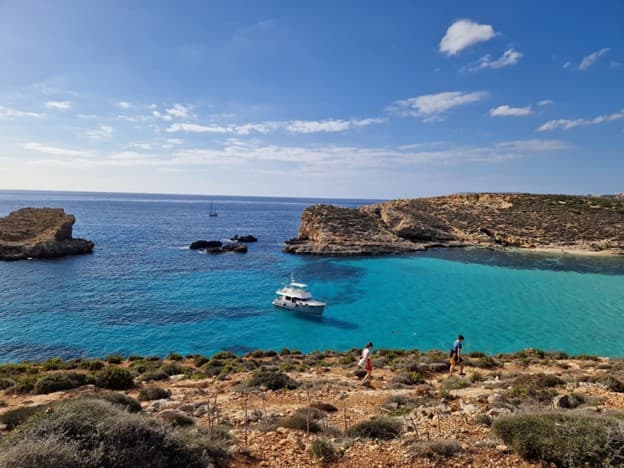
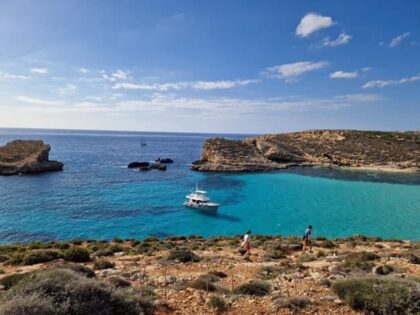
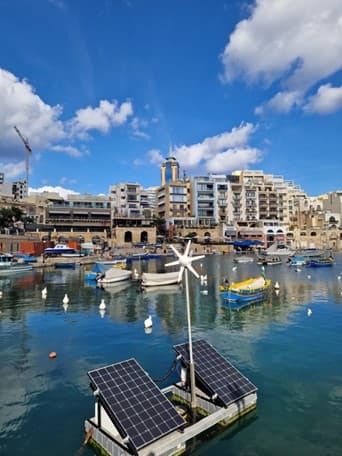
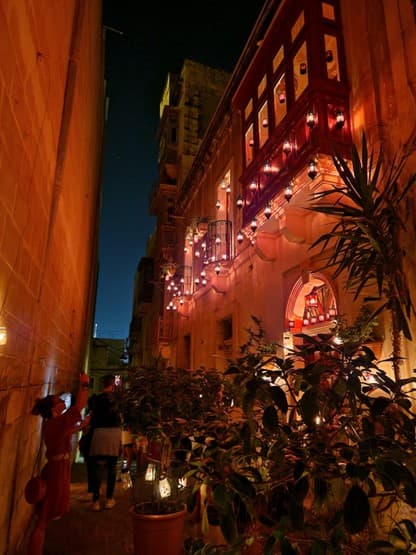
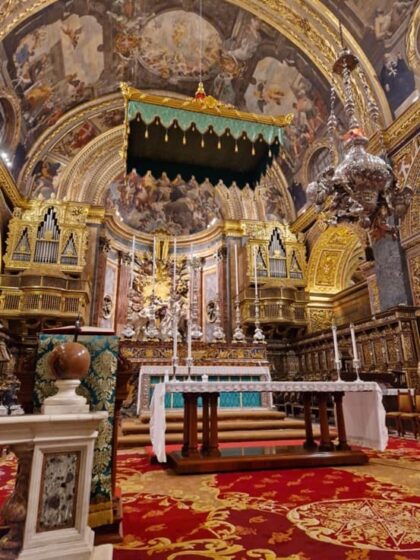
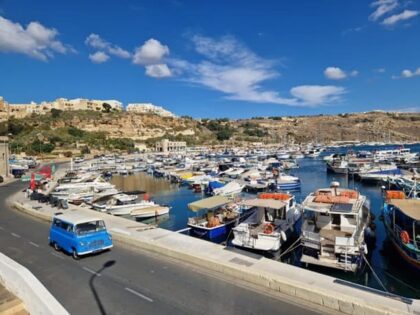
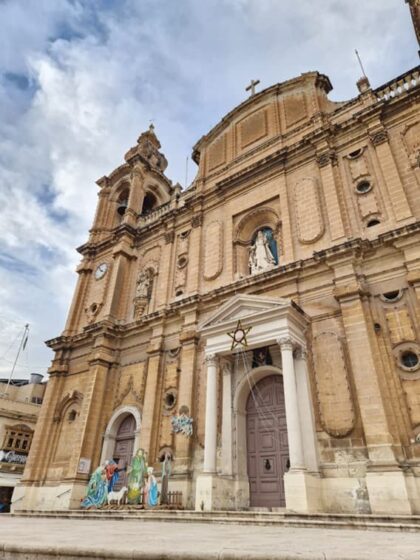
Neueste Kommentare